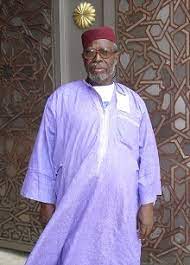 Full Name:
Full Name:Moustapha Alassane
Occupation / Title:Animator, Director, Educator, Filmmaker, Inventor
Date of birth:1942
Date of death:17/03/2015
Birthplace:Niger
Biography
Moustapha Alassane was born in N’Dougou, Niger in 1942.
Alassane is credited as the Father of African animation and he directed approximately 30 films. He introduced and spread the word of filmmaking, provided local training, and aided in the development of film technologies in cities, villages, and universities. He also taught locals how to use the tools for digital film production after learning how to use them himself. In his career, he has produced a variety of short and feature films both live-action and animated, and in many genres like westerns, gangster films, and documentaries.
Alassane died in Ouagadougou, Burkina Faso on March 17, 2015.
Family and early life
Before he became an animator, he obtained a degree in Mechanics. Alassane was an inventor by heart, making theater puppets out of cardboard for his fellow villagers when there were no film theaters at the time. He had also made a camera from scratch.
Career outline
Alassane’s career started at the end of the 1940s when he put on shows with ombre chinoises (shadow puppets).
In 1965, he made the first animated African film titled La mort de Gandji in 1965. This film highlighted themes of social responsibility and democracy, and was awarded the Antilope d’Argent at the World Festival of Black Arts in 1966.
His second animation, Bon Voyage Sim (1966), criticized political power and its failings to serve its citizens in the post-colonial era. In the same year, he made Le retour de l’aventurier, which is a parody of the western film genre.
He went on to make his first feature-length film in 1972 with Femme, villa, voiture argent (1972), which was made as a result of disillusionment of the vanity projects of the new-money upper class involved in politics after a decade of independence.
In total, he made around 30 films between 1962 and 2003. Tagimba (2003) was his final film. In his later years, he operated a hotel in the Tahoua Region of Niger.
Personal style
Alassane stated that the frog was his favourite animal, and they would often be the protagonists of his films. The reason for this was because he thought that it was more entertaining to animate frogs rather than humans.
His works highlight his satirical eye on the social habits of Niger with a focus to denounce the power of ‘new wealth’ in Africa.
Honors and awards
World Festival of Black Arts (1966) – Antilope d’Argent for La mort de Gandji
Cannes Film Festival (2007) – French Legion of Honour
References:
Kaboré, Gaston. “‘If There Is a Secret, It Is the Love and Passion I Feel for My Profession.”
Interview with Moiustapha Alassane (Excerpt).” African Film Festival Inc, 23 July 2014, https://africanfilmny.org/articles/if-there-is-a-secret-it-is-the-love-and-passion-i-feel-for-my-profession/.
“Moustapha Alassane.” African Film Festival New York, n.d.
Niang, Sada. “Alassane, Moustapha.” Dictionary of African Biography, edited by Henry Louis Gates, Emmanuel Akyeampong, and Steven J. Niven, Oxford University Press, 2011.
